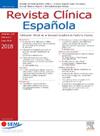Asociación entre las cadenas ligeras de neurofilamento en suero (sNfL) y los trastornos neurológicos en una muestra representativa de adultos en los Estados Unidos: un estudio transversal
IF 2.3
4区 医学
Q2 MEDICINE, GENERAL & INTERNAL
引用次数: 0
Abstract
Background
While increased neurofilament light chain (NfL) in serum concentrations are linked to the progression of several neurological conditions, their distribution and implications within the general adult population remain largely unexplored. The current research aims to clarify the relationship among serum NfL levels and neurological disorders in a broad and representative population sample.
Methods
We utilized information gathered from 1,751 adults involved in the 2013-2014 cycle of the National Health and Nutrition Examination Survey (NHANES). Our analytical approach encompassed logistic regression, smoothed curve fitting, and subgroup analyses to identify potential correlations between serum NfL levels and neurological conditions, including depression, severe hearing and visual impairments, stroke, subjective memory deficits, and sleep problems.
Results
After adjusting for confounders, we found that higher serum NfL concentrations were significantly associated with increased risks of depression, stroke, subjective memory deficits, and longer sleep duration (P<.05). Subgroup analyses supported these findings. Additionally, BMI significantly influenced the relationship between serum NfL levels and subjective memory deficits.
Conclusion
Our research shows that higher serum NfL levels are strongly related to an elevated risk for several neurological disorders. These findings highlight the role of serum NfL serving as a critical marker for early detection and monitoring of neurological conditions, emphasizing its importance in both clinical and public health settings.
美国代表性成人样本中血清神经丝蛋白轻链 (sNfL) 与神经系统疾病之间的关系:一项横断面研究。
背景虽然血清中神经丝轻链(NfL)浓度的升高与多种神经系统疾病的进展有关,但其在普通成年人群中的分布和影响在很大程度上仍未得到探讨。目前的研究旨在通过广泛而具有代表性的人群样本,阐明血清中 NfL 水平与神经系统疾病之间的关系。方法我们利用了美国国家健康与营养调查(NHANES)2013-2014 年周期中收集的 1751 名成年人的信息。我们的分析方法包括逻辑回归、平滑曲线拟合和亚组分析,以确定血清 NfL 水平与神经系统疾病(包括抑郁症、严重听力和视力障碍、中风、主观记忆缺陷和睡眠问题)之间的潜在相关性。结果在对混杂因素进行调整后,我们发现血清 NfL 浓度越高,抑郁症、中风、主观记忆缺陷和睡眠时间越长的风险就越高(P< .05)。亚组分析支持这些发现。结论我们的研究表明,较高的血清 NfL 水平与多种神经系统疾病的风险升高密切相关。这些研究结果突显了血清 NfL 作为早期检测和监测神经系统疾病的重要标志物的作用,强调了其在临床和公共卫生环境中的重要性。
本文章由计算机程序翻译,如有差异,请以英文原文为准。
求助全文
约1分钟内获得全文
求助全文
来源期刊

Revista clinica espanola
医学-医学:内科
CiteScore
4.40
自引率
6.90%
发文量
73
审稿时长
28 days
期刊介绍:
Revista Clínica Española published its first issue in 1940 and is the body of expression of the Spanish Society of Internal Medicine (SEMI).
The journal fully endorses the goals of updating knowledge and facilitating the acquisition of key developments in internal medicine applied to clinical practice. Revista Clínica Española is subject to a thorough double blind review of the received articles written in Spanish or English. Nine issues are published each year, including mostly originals, reviews and consensus documents.
 求助内容:
求助内容: 应助结果提醒方式:
应助结果提醒方式:


